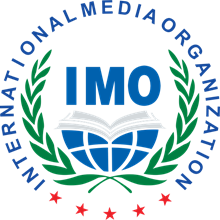One of the key recommendations of the 2019 UNESCO-led International Conference on Artificial Intelligence (AI) and Education was to develop AI in Education Policy Guidelines and to promote policy dialogue on AI in education with education policy-makers. This new publication is issued in response to the urgent need to equip and to guide the policy-makers and relevant education stakeholders so as to develop comprehensive AI in education policies in Member States.
In the era of Industry 4.0, Artificial Intelligence (AI) has the potential to address some of the biggest challenges in education today, innovate teaching and learning practices, and ultimately accelerate the progress towards SDG 4 and quality lifelong learning. However, these rapid technological developments inevitably bring multiple risks and challenges, which have so far outpaced policy debates and regulatory frameworks. UNESCO is committed to supporting Member States to harness the potential of AI technologies for achieving the Education 2030 Agenda, while ensuring that the application of AI in educational contexts is guided by the core principles of inclusion and equity.
UNESCO’s mandate calls inherently for a human-centred approach to AI. It aims to shift the conversation to include AI’s role in addressing current inequalities regarding access to knowledge, ethics, policy, research and the diversity of cultural expressions and to ensure AI does not widen the technological divides within and between countries. The promise of “AI for all” must be that everyone can take advantage of the technological revolution under way and access its fruits, notably in terms of innovation and knowledge.
UNESCO has developed a publication within the framework of the 2019 Beijing Consensus on AI in Education aimed at fostering the readiness of education policy-makers in artificial intelligence. This publication, “Artificial Intelligence and Education: Guidance for Policy-makers”, will be of interest to practitioners and professionals in the policy-making and education communities. It aims to generate a shared understanding of the opportunities and challenges that AI offers for education, as well as its implications for the core competencies needed in the AI era.
Through its projects, UNESCO affirms that the deployment of AI technologies in education should be purposed to enhance human capacities and to protect human rights for effective human-machine collaboration in life, learning and work, and for sustainable development. Together with partners, international organizations, and the key values that UNESCO holds as pillars of their mandate, UNESCO hopes to strengthen their leading role in AI in education, as a global laboratory of ideas, standard setter, policy advisor and capacity builder.
UNESCO would like to thank the Weidong Group of China for making this publication possible through its financial support to UNESCO. The financial support also helps Member States leverage technology and AI to achieve Sustainable Development Goal 4.
Beijing Consensus on artificial intelligence and Education
Representatives from the Member States, international organizations, academic institutions, civil society and the private sector have adopted the Beijing Consensus on Artificial Intelligence and Education, at the International Conference on Artificial Intelligence and Education held in Beijing from 16 to 18 May 2019. It is the first ever document to offer guidance and recommendations on how best Member States can respond to the opportunities and challenges brought by AI for accelerating the progress towards SDG 4.
The Consensus reaffirms a humanistic approach to deploying AI technologies in education for augmenting human intelligence, protecting human rights and for promoting sustainable development through effective human-machine collaboration in life, learning and work.
The Consensus details the policy recommendations on AI in education in five areas:
- AI for education management and delivery;
- AI to empower teaching and teachers;
- AI for learning and learning assessment;
- Development of values and skills for life and work in the AI era; and
- AI for offering lifelong learning opportunities for all.
It also elaborates recommendations corresponding to four crosscutting issues:
- Promoting equitable and inclusive use of AI in education;
- Gender-equitable AI and AI for gender equality;
- Ensuring ethical, transparent and auditable use of education data and algorithms; and
- Monitoring, evaluation and research.
The Consensus concludes with the concrete actions proposed for the international communities and individuals active in the field of AI in education to undertake.


